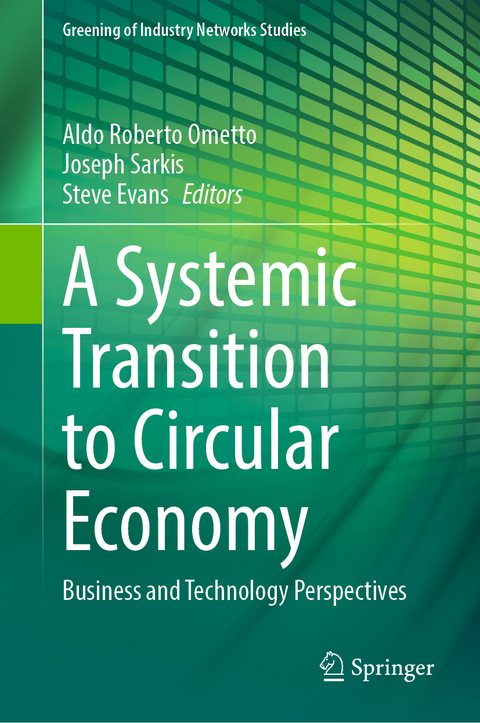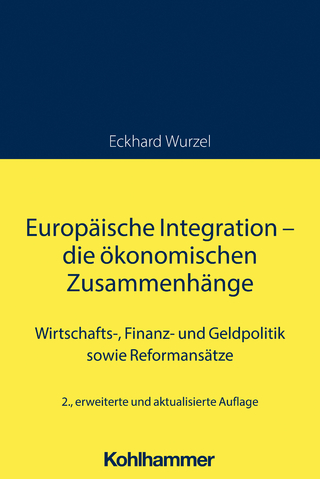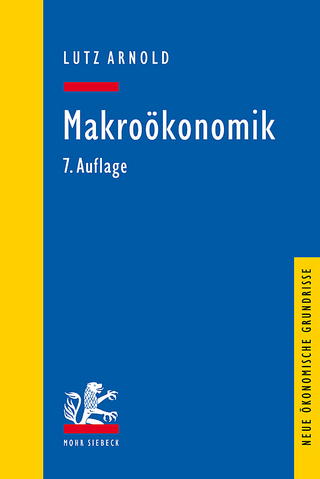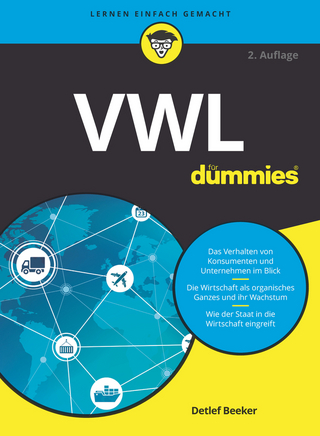
A Systemic Transition to Circular Economy
Springer International Publishing (Verlag)
978-3-031-55035-5 (ISBN)
The book will explore, using multiple perspectives from multiple contributors, two main aspects for circular economy (CE) business and technology (B&T): systems and value perspectives. Going beyond a linear-economic perspective--the traditional perspective--CE needs to develop intentional and integrated paths to help restore physical resources and regenerate the functions of natural and anthropic systems, creating greater economic and social opportunities, with environmentally positive outcomes. Whether this is feasible and possible within the context of CE and B&T is something that will be central to the contributions made in this book.
A major objective of the book is to deliver practical and fundamental knowledge of B&T CE insights combining a systems perspective and value creation for socio-technical innovation leading to sustainable transitions and effective transformations.
Based on those key aspects, the book is structured in two parts, one from a more theoretical and conceptual basis in Part 1, and a more applied perspective in Part 2. The chapters in Part 1 are presented through the lens of business and systems transitions. In Part 2, the chapters present the opportunities and the journeys from real case studies of companies engaged in circular business strategies, processes, practices, and technologies.
Aldo Roberto Ometto has a degree in Production Engineering - Chemistry from the Federal University of São Carlos (1997), a Master's degree in Environmental Engineering Sciences from the University of São Paulo - USP (2000) and a PhD in Hydraulic Engineering and Sanitation from the University of São Paulo (2005) about Life Cycle Assessment (LCA), with a PhD period at Technical University of Denmark (DTU), in Denmark. Since 2006, he has been a professor at the University of São Paulo (USP). In 2011, he did a Postdoctoral at the Autonomous University of Barcelona (UAB), Spain. In 2023, he was a visiting professor at Griffith University, Cities Research Institutes & Griffith Centre of System Innovation, Griffith Business School, Brisbane, Australia, and he worked at the Industrial Transformation Research Hub for Nutrients in a Circular Economy (NiCE) in the Australian Research Council (ARC). He leads the Research Centre for Circular Economy (RC4CE) within the Innovation Centre at USP - InovaUSP, developing innovative projects with multi-stakeholders, mainly in partnership with the industrial sector, focusing on system and impact innovation, sustainability transition, life cycle management/assessment, circular business models, and circular ecosystems. He is the author of more than 200 scientific papers in journals and conference proceedings, 4 books, and 26 book chapters. In 2018, he was the finalist of the World Economic Forum Award "The Circulars", in the Global Leadership category. He is a member of the FutureEarth Research Coalition - Circular Economy Working Group and the lead from USP of the Profiled Universities Network Program in Circular Economy from the Ellen MacArthur Foundation.
Joseph Sarkis is a Professor of Management in the Business School at the Worcester Polytechnic Institute. He earned his PhD in Management Sciences from the University of Buffalo. He previously served as a faculty member at the University of Texas at Arlington and at Clark University's Graduate School of Management. His teaching interests include topics in Business and the Environment, Operations, Logistics, Quality, Technology, Information and Supply Chain Management, and Multicriteria Decision Making. He has also taught courses on topics in Business and the Natural Environment. He has published over 350 publications in peer-reviewed archival journals. Topics covered in his research are similar to those covered by his teaching interests. He has also published over 250 additional papers as chapters in books and in conference proceedings. His research interests range from practical application research to conceptual and theoretical research. Currently, he serves on a number of editorial boards for a broad variety of journals including operations and manufacturing, technology management, production, environmental and information systems journals. He has previously served as Editor in Chief of IEEE Engineering Management Review and Management Research Review. He has served as special issue editor for a number of journals in which he has covered topical areas including Green Supply Chain Management, Sustainability, Manufacturing Technology Management, Enterprise Resource Planning, E-commerce and Manufacturing, Agile and Virtual Enterprises. His publications include thirteen books, and two of his books include topics on Circular Economy and Facilitating Collaboration for Sustainable Innovation and Greening the Supply Chain, both published by Springer. He has served as a visiting scholar at various international locations including Cardiff University's BRASS Center, a visiting Scholar in the EU Erasmus Mondus MESPOM program and a Sea-Sky Scholar at Dalian University of Technology; and Visiting Professor and International Scholar at the Hanken School in Finland; and the Chair d'Excellence at Université Polytechnique Hauts-de-France. He is a member of a number of professional organizations.
Chapter 1. Introduction - Circular Economy as a part of the new and sustainable Economy in the XXI Century.- Part I. Business and Systems Transitions.- Chapter 2. A value flow perspective in the Circular Business Model.- Chapter 3. The design of Sustainable Product-Service Systems to foster Circular Economy for All.- Chapter 4. Initiating a Minimum Viable Ecosystem for Circularity.- Chapter 5. Organizational practices, values, and mindsets as a basis for circular economy transition.- Chapter 6. From socio-technical innovations to ecological transitions: A multilevel perspective on Circular Economy.- Part II. Business Technologies, Processes, and Practices.- Chapter 7. The importance of Circular Economy in HP Sustainable Impact Strategy.- Chapter 8. Purchasing and Supply Management Journey into Unilever's Circular Economy Strategy.- Chapter 9. Circular Economy in the paperboard industry: Ibema Cases.- Chapter 10. Circular Economy Principles in Urban Agri-food Systems: Potentials and Implications for Environmental Sustainability.- Chapter 11. A systems perspective on the Industry 4.0 technologies as enablers of Circular Economy transitions.- Chapter 12. Psychological and systemic factors influencing behaviour in circular consumption systems: Lessons from the fast-moving consumer goods and apparel industries
| Erscheinungsdatum | 31.03.2024 |
|---|---|
| Reihe/Serie | Greening of Industry Networks Studies |
| Zusatzinfo | XI, 250 p. 47 illus., 40 illus. in color. |
| Verlagsort | Cham |
| Sprache | englisch |
| Maße | 155 x 235 mm |
| Themenwelt | Wirtschaft ► Volkswirtschaftslehre |
| Schlagworte | circular economy • Circular Tools • Economic Transition • sustainability • Sustainable Supply Chains |
| ISBN-10 | 3-031-55035-8 / 3031550358 |
| ISBN-13 | 978-3-031-55035-5 / 9783031550355 |
| Zustand | Neuware |
| Informationen gemäß Produktsicherheitsverordnung (GPSR) | |
| Haben Sie eine Frage zum Produkt? |
aus dem Bereich


